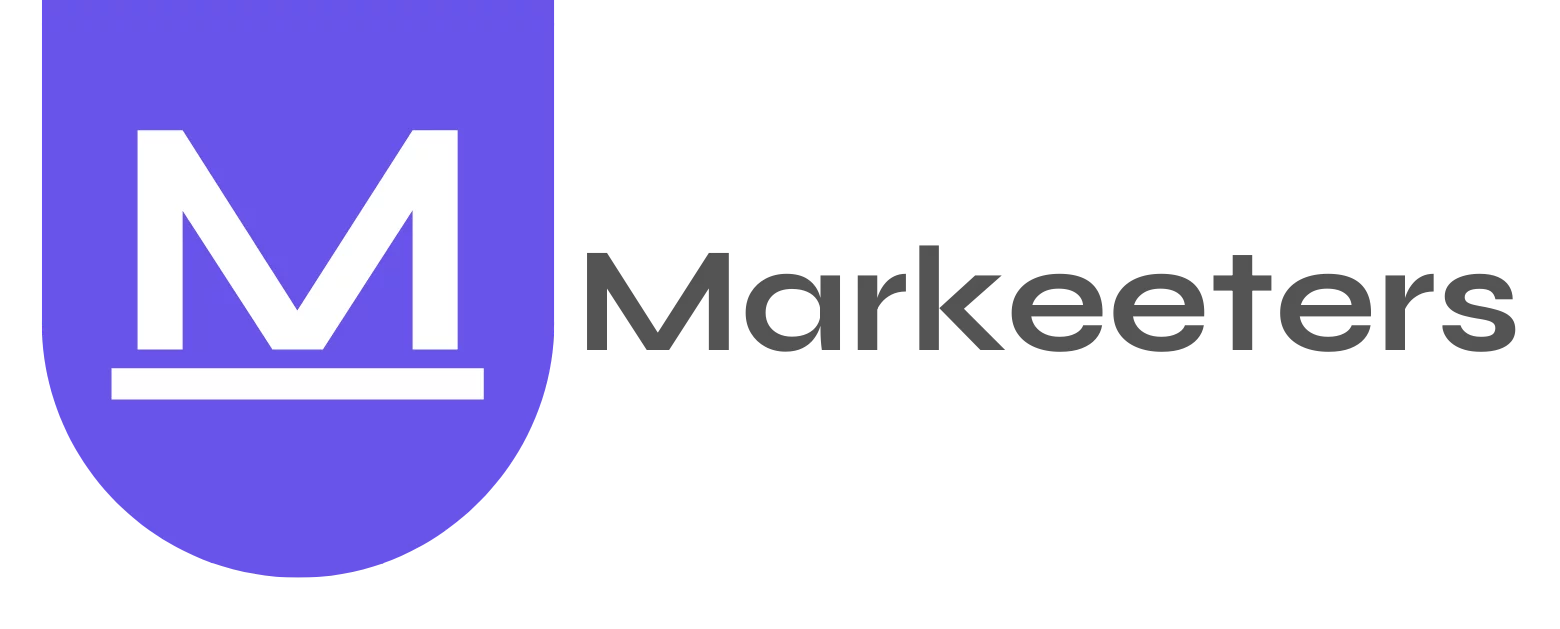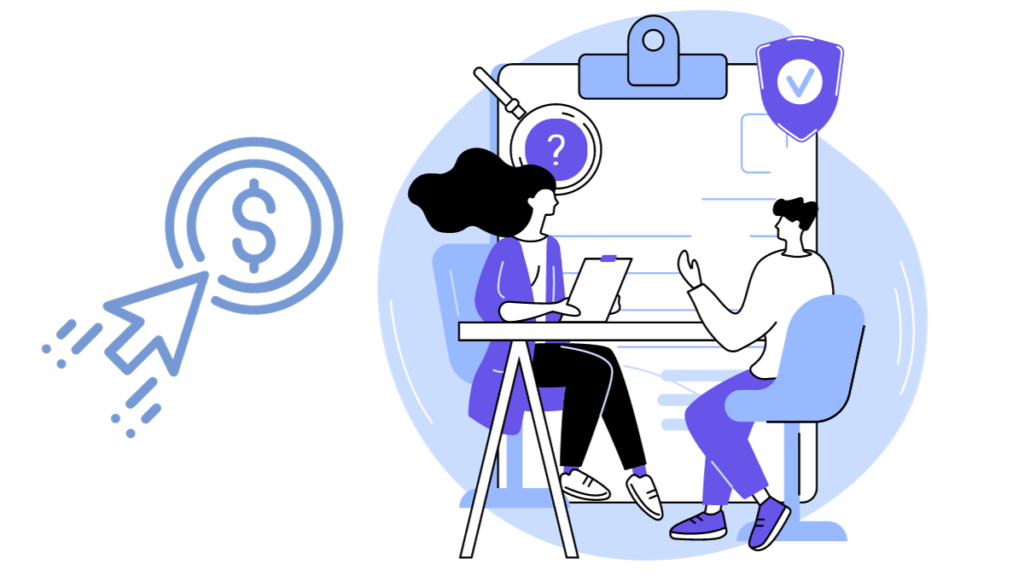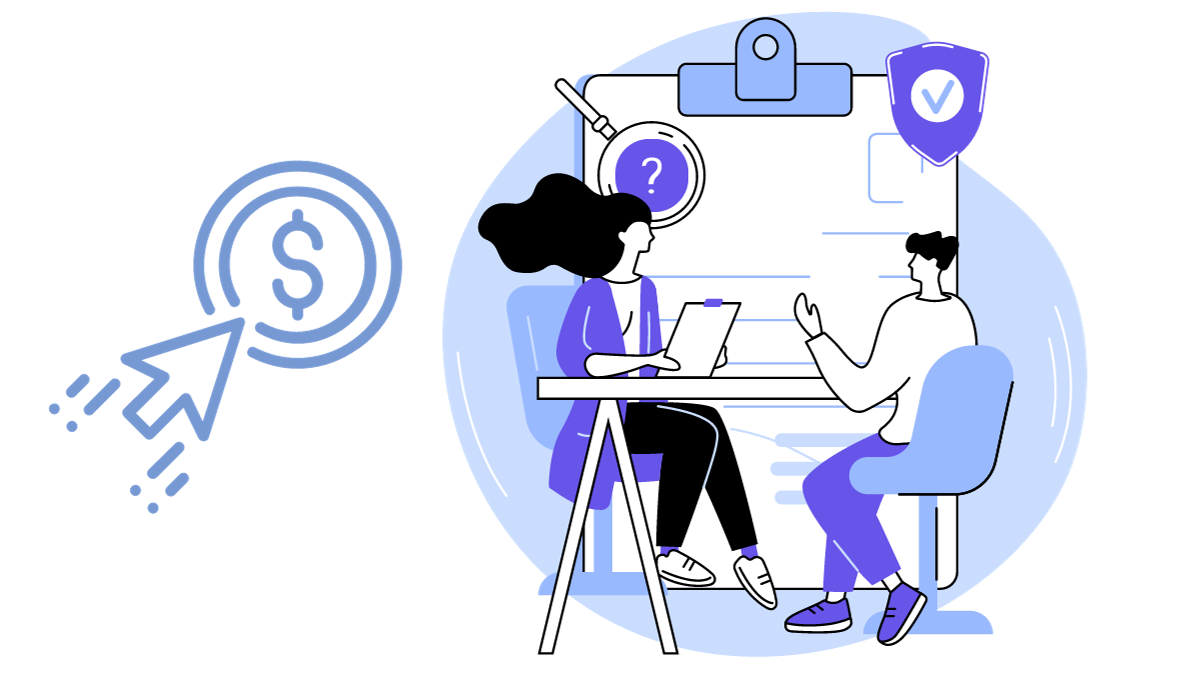Are you a startup founder lost in the maze of online marketing strategies, desperately seeking a way to reach your target audience? Well, fear not, because you’ve come to the right place! In this ultimate guide to hiring the right PPC expert for your startup, we will help you understand what paid search is and show you how it can be the game-changer you’ve been searching for.
Picture this. You have a brilliant product or service, but it’s not gaining traction. You know you need to leverage the power of online advertising, but where do you start? The world of PPC, or pay-per-click, can be intimidating and confusing, especially for startup founders who may not have a strong background in digital marketing.
Finding the right PPC expert could be tricky, but it’s a critical investment for your startup. In this guide, we will walk you through the step-by-step process of hiring the perfect PPC expert for your startup, ensuring that you find a skilled professional who will take your business to new heights.
Hiring the right PPC expert is crucial for a startup, let’s see why.
Why Hire a PPC Expert for Your Startup
1. **Effective online advertising** In the internet age, online advertising can be a game-changer, especially for D2C and e-commerce startups. A skilled PPC expert knows how to create effective ad campaigns that reach your target audience, drive traffic to your website, and generate leads. They have the knowledge and expertise to optimize your ads for maximum visibility and conversions.
2. **Cost efficiency** As a startup, you need to make every penny count. A PPC expert understands how to optimize your PPC budget, ensuring that you get the highest return on investment (ROI). They can help you avoid wasting your money on ineffective ads and focus on strategies that deliver tangible results.
3. **Targeted audience reach** One of the biggest challenges for startups is finding their niche and reaching their target audience. A PPC expert can conduct thorough market research and implement strategies that target specific demographics, locations, or interests. This laser-focused approach ensures that your ads are seen by the right people, increasing your chances of converting them into customers.
4. **Quick results** Unlike traditional advertising methods, PPC campaigns can deliver quick results. With the right PPC expert, you can see immediate improvements in your website traffic, brand visibility, and lead generation. This allows startups to gain momentum and start generating revenue faster.
5. **Continuous optimization** A PPC expert doesn’t just set up your ad campaigns and leave them running. They constantly monitor and optimize your campaigns, ensuring that they stay relevant and effective. They analyze data, make data-driven decisions, and make necessary adjustments to drive better results for your startup.
So, by hiring the right PPC expert, you can leverage the power of online advertising, reach your target audience effectively, maximize your budget, and achieve great results for your startup.
20 Best PPC (Pay-Per-Click) Interview Questions to Ask
Here’s a list of the best PPC (Pay-Per-Click) interview questions to assess a candidate’s fitment for managing PPC campaigns effectively for your startup. These questions have been curated after speaking to some of the experts in the industry and also researching the hundreds of question banks available on different platforms. Consider this as your go-to guide.
1. Can you explain what PPC advertising is and how it works?
PPC advertising, or pay-per-click advertising, is a marketing model in which advertisers pay a fee each time their ad is clicked. It works by allowing advertisers to bid on keywords relevant to their products or services. When a user searches for those keywords, the search engine displays the advertiser’s ad. If the user clicks on the ad, the advertiser pays the agreed-upon fee. PPC advertising enables businesses to reach their target audience effectively and drive traffic to their websites.
2. What are the key components of a PPC campaign?
The key components of a PPC campaign include keyword research, ad creation, bid management, and landing page optimization. Keyword research is crucial to identify the right keywords to target. Ad creation involves creating compelling and relevant ad copy that attracts clicks. Bid management ensures that the advertiser’s ad is displayed prominently in search results. Landing page optimization involves optimizing the webpage that users land on after clicking the ad, ensuring a seamless user experience and driving conversions.
3. How do you conduct keyword research for a PPC campaign?
To conduct keyword research, I start by brainstorming potential keywords related to the business and its offerings. I also use keyword research tools like Google Keyword Planner to find additional relevant keywords. It’s important to consider factors such as search volume, competition, and relevance when choosing keywords. I focus on selecting keywords with high search volume and low competition to maximize the campaign’s effectiveness.
4. How do you ensure that your PPC ads are relevant to the target audience?
To ensure that PPC ads are relevant to the target audience, I tailor the ad copy and messaging to align with their specific needs and preferences. I conduct thorough research on the target audience’s demographics, interests, and pain points. By understanding their motivations and desires, I can create ads that resonate with them. I also utilize audience targeting features provided by PPC platforms to segment the audience and deliver ads specifically tailored to each segment.
5. What are ad extensions, and why are they important in PPC?
Ad extensions are additional pieces of information that can be included with PPC ads, such as phone numbers, location information, or additional links. Ad extensions enhance the visibility and relevance of ads, providing more information to potential customers. They increase the ad’s real estate on the search results page, making it more eye-catching. Ad extensions also improve the user experience by offering more options and opportunities for engagement, ultimately driving higher click-through rates and conversions.
6. How do you determine the appropriate bidding strategy for a PPC campaign?
The appropriate bidding strategy for a PPC campaign depends on various factors like campaign goals, budget, and competition. I analyze historical data and competitor analysis to determine the most suitable bidding strategy. For example, if the goal is to maximize clicks within a set budget, I might choose an automated bidding strategy like Maximize Clicks. If the goal is to achieve a specific conversion rate, I may opt for a manual bidding strategy like Target CPA or Target ROAS.
7. What factors do you consider when setting a PPC budget?
When setting a PPC budget, I consider factors such as the business’s overall marketing budget, campaign goals, keyword competition, and expected return on investment (ROI). I analyze historical campaign data to understand the typical cost per click (CPC) and conversion rates. I also consider the average customer lifetime value (CLTV) to determine the appropriate budget allocation for PPC advertising. It’s essential to strike a balance between investing enough to achieve meaningful results while ensuring efficient utilization of resources.
8. How do you track and measure the success of a PPC campaign?
I track and measure the success of a PPC campaign using key performance indicators (KPIs) such as click-through rate (CTR), conversion rate, cost per conversion, and return on ad spend (ROAS). I use conversion tracking tools like Google Analytics and conversion pixels to monitor user actions and attribute them to the PPC campaign. These insights help me evaluate the campaign’s performance, identify areas for improvement, and make data-driven decisions to optimize the campaign for better results.
9. What is Quality Score in Google Ads, and how does it impact PPC performance?
Quality Score is a metric used by Google Ads to measure the quality and relevance of PPC ads and keywords. It is based on factors like click-through rate, ad relevance, and landing page experience. A higher Quality Score leads to lower costs and better ad positions. It impacts PPC performance by influencing the ad’s eligibility to be shown, the ad rank, and the cost per click. A higher Quality Score indicates that the ad is more relevant to users’ search queries, resulting in better performance and higher ad visibility.
10. How do you optimize landing pages for better PPC conversions?
To optimize landing pages for better PPC conversions, I focus on improving the page’s relevance, user experience, and call-to-action elements. I ensure that the landing page aligns with the ad’s messaging and provides the information or solution users are seeking. I optimize the page’s loading speed, layout, and mobile-friendliness to enhance the user experience. I also create clear and compelling call-to-action buttons that direct users toward desired actions, such as making a purchase or filling out a form.
11. Can you explain the difference between manual bidding and automated bidding in PPC?
Manual bidding involves the advertiser manually setting and adjusting bids for keywords and ad groups based on their goals and strategies. It provides more control but requires ongoing monitoring and adjustments. Automated bidding, on the other hand, utilizes machine learning algorithms to set bids automatically based on predefined goals and parameters. It saves time and leverages data to optimize bids for optimal results. Automated bidding strategies include Maximize Clicks, Target CPA, and Target ROAS.
12. How do you create effective ad copy that drives clicks and conversions?
To create effective ad copy, I focus on crafting compelling headlines and persuasive messaging that resonate with the target audience. I highlight unique selling propositions, benefits, or special offers to grab attention and create a sense of urgency. I use strong calls-to-action to encourage clicks and clearly communicate what users can expect upon clicking the ad. It’s also important to align the ad copy with the landing page to ensure a seamless transition and enhance the chances of conversions.
13. What are negative keywords, and why are they important in PPC?
Negative keywords are terms or phrases that prevent ads from being shown when those specific keywords are part of a user’s search query. They help filter out irrelevant searches, ensuring ads are shown to the most relevant audience. Negative keywords are crucial in eliminating wasted ad spend on irrelevant clicks and improving campaign efficiency. By continuously monitoring and adding negative keywords, we can refine targeting, improve ad relevancy, and reduce overall cost.
14. Have you worked with PPC platforms other than Google Ads (e.g., Bing Ads, Facebook Ads)? If yes, what are the differences in managing campaigns across these platforms?
Yes, I have worked with multiple PPC platforms, including Bing Ads and Facebook Ads. While Google Ads is the primary platform with the largest reach, Bing Ads offers access to a different set of audiences and tends to have lower competition, making it potentially cost-effective. Facebook Ads, on the other hand, allows precise targeting based on demographics, interests, and behaviors. Each platform has its unique interface, targeting options, and ad formats, requiring tailored strategies and optimization techniques.
15. How do you approach A/B testing in PPC, and what elements do you typically test?
I approach A/B testing in PPC by creating variations of ads, landing pages, or specific elements within them to compare performance. I split the audience between the different variations, allowing me to test which version performs better. Elements that can be tested include headlines, ad copy, call-to-action buttons, visuals, landing page layouts, and forms. By conducting A/B tests, I gather insights into user preferences and identify the most effective strategies to optimize campaigns for better performance.
16. How do you handle ad fatigue and ensure your ads stay relevant and engaging over time?
To handle ad fatigue and maintain ad relevance, I regularly monitor ad performance and refresh creative elements. I analyze key metrics like CTR, conversion rate, and impression share to identify signs of ad fatigue. I update ad copy, headlines, visuals, or offers to keep the ads fresh and engaging. I also rotate different variations of ads periodically to prevent audience saturation. Continuous testing and optimization ensure that the ads stay relevant, engaging, and effective in driving clicks and conversions.
17. Can you share an example of a successful PPC campaign you’ve managed in the past? What strategies did you use to achieve its success?
Certainly! In a past campaign for a fitness app, we implemented a combination of strategies to achieve success. We conducted thorough keyword research to target relevant fitness-related keywords with high search volume and low competition. I optimized the landing page with compelling copy, visually appealing imagery, and clear call-to-action buttons. I created ad variations with different messaging and offers and performed A/B testing to identify top-performing elements. Continuous monitoring, bid adjustments, and ad optimization based on data analysis helped us achieve a high CTR, low cost per conversion, and increased app downloads.
18. How do you stay updated with the latest trends and changes in the PPC industry?
I stay updated with the latest trends and changes in the PPC industry through various channels. I actively follow industry-leading blogs, forums, and social media communities dedicated to PPC and digital marketing. I also attend industry conferences and webinars to learn from experts and gain insights into emerging strategies. Additionally, I engage in continuous learning through online courses, certifications, and platforms like Google Academy for Ads. Staying updated allows me to adapt to evolving trends, leverage new features, and implement best practices to achieve optimal results in PPC campaigns.
19. Have you ever faced challenges with PPC campaigns, and how did you overcome them?
Yes, I have faced challenges with PPC campaigns, such as high competition, low conversion rates, or budget limitations. To overcome these challenges, I implemented strategies like refining keyword targeting, improving ad copy and visuals, optimizing landing pages, and adjusting bidding strategies. In cases of low conversion rates, I conducted thorough data analysis to identify bottlenecks in the conversion funnel or targeting. By iteratively testing and implementing optimizations, I was able to overcome challenges and achieve improved campaign performance.
20. How do you ensure your PPC campaigns align with overall marketing and business goals?
To ensure PPC campaigns align with overall marketing and business goals, I emphasize close collaboration and alignment with the broader marketing team or strategy. I thoroughly understand the business’s marketing goals, target audience, and value proposition. Applying this knowledge, I create PPC campaigns that reflect the brand’s messaging, tone, and positioning. Regular communication and coordination with the marketing team help me align campaign strategies with broader marketing initiatives, ensuring consistent messaging and synergy across all marketing channels.
Conclusion
Remember, hiring the right PPC expert can be a game-changer for your startup. They have the knowledge and expertise to effectively manage PPC campaigns, drive targeted traffic, and maximize your advertising budget. With their help, you can reach your target audience, generate leads, and ultimately grow your business.
As you start your search for the perfect PPC expert, keep in mind the qualities to look for – a deep understanding of PPC advertising, strong analytical skills, creativity, and a data-driven approach. Be sure to ask the right interview questions and assess their practical experiences.
We hope this guide helps you to confidently navigate through the hiring process and find the PPC expert who will take your startup to the next level.





